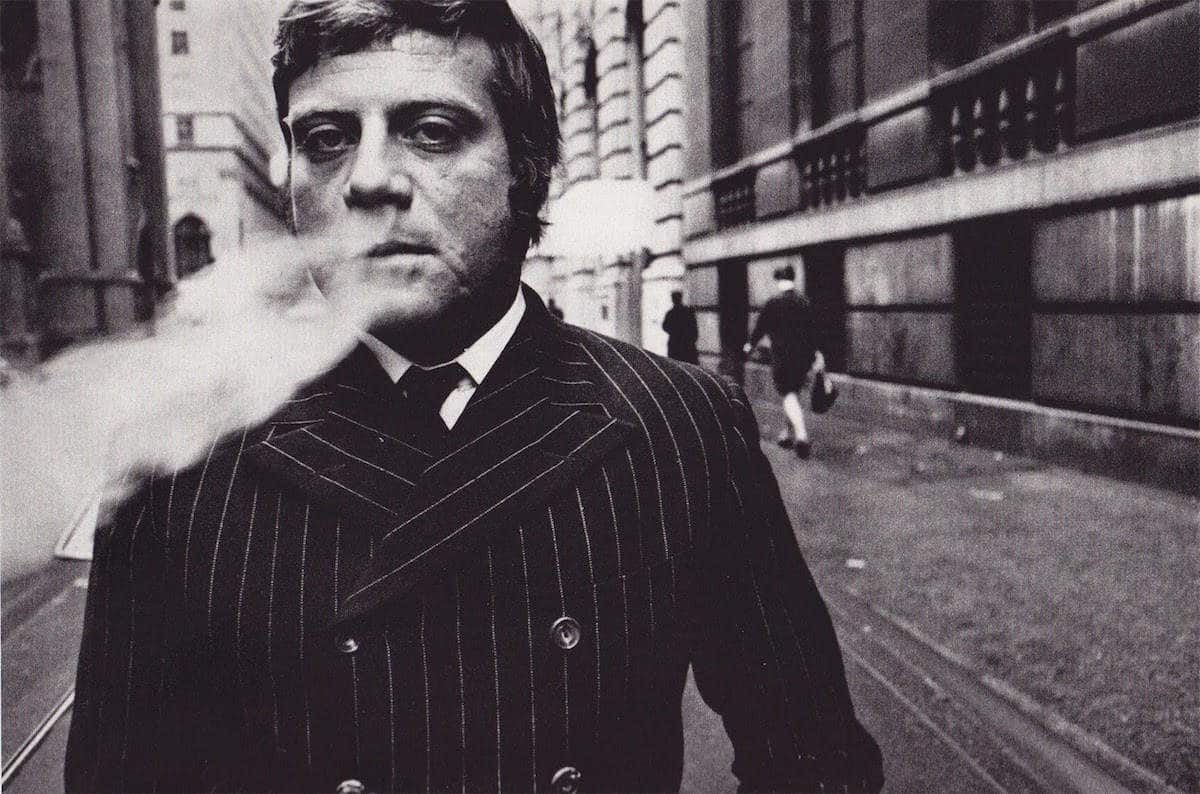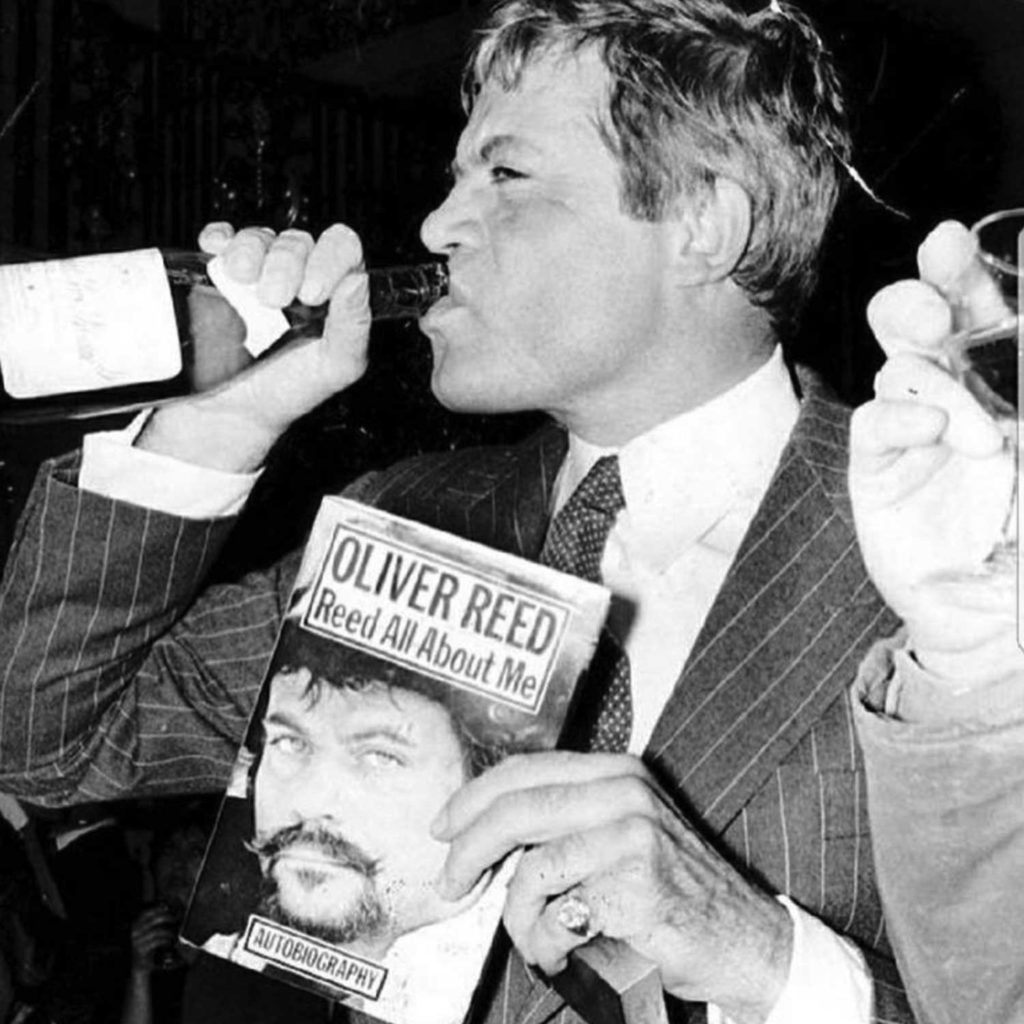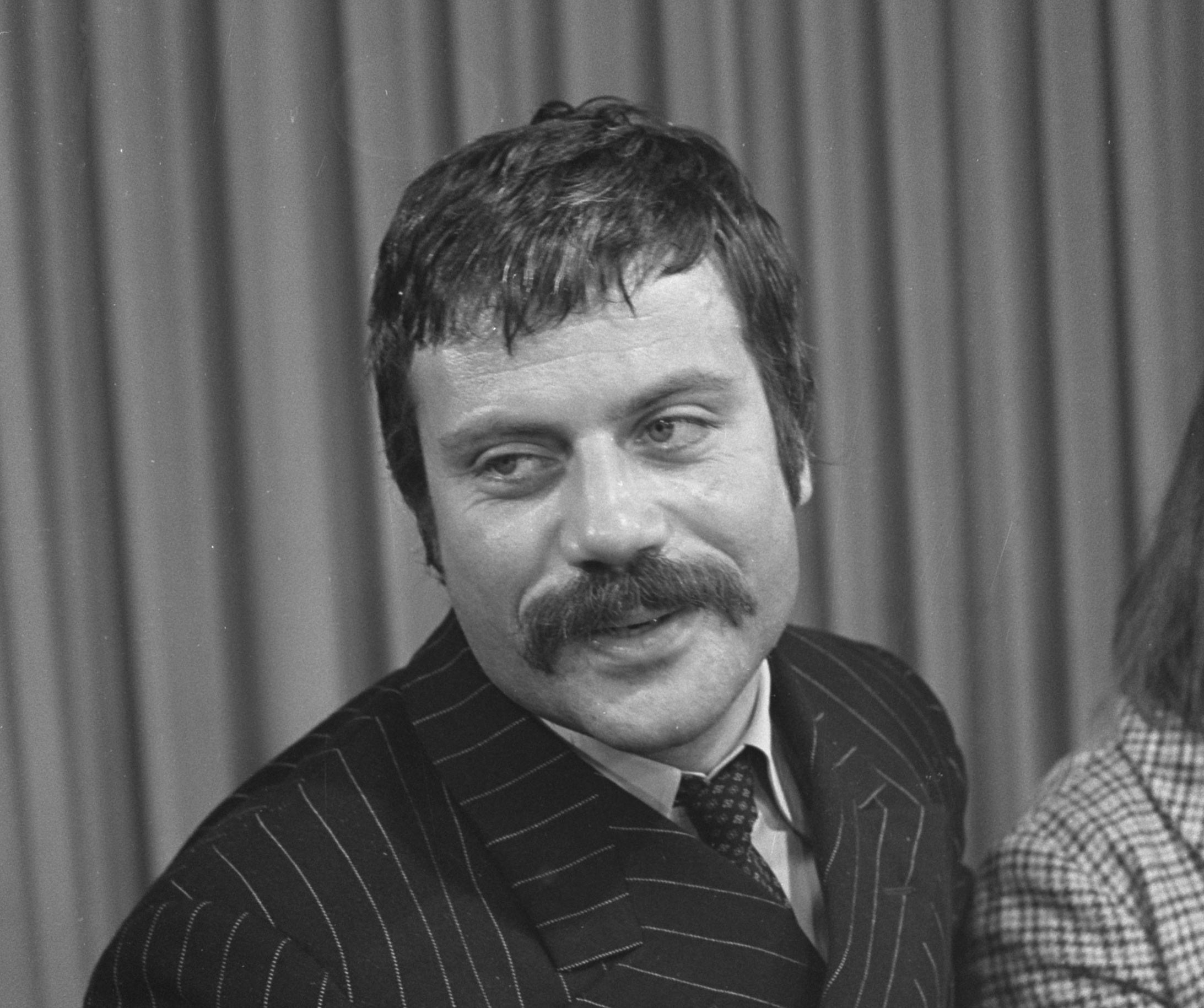Oliver Reed, a figure who truly made his mark on the big screen, continues to be a topic of conversation for many who appreciate a strong, unforgettable acting presence. His unique way of performing, combined with a life lived rather openly, means there's a lot to consider when we think about his time in the spotlight. He was, you know, a very distinct kind of performer, someone who brought a certain energy to every character he took on.
For those who followed British cinema, especially in the 1960s, Oliver Reed was a face you simply couldn't miss. He had this way of appearing on screen that really grabbed your attention, a kind of powerful physical presence that made his characters feel very real, very much there. People often remember him for that rather strong, almost imposing, way he carried himself in films, which, you know, sort of became his calling card in a way.
His story, too, is almost one that feels like it could be from a film itself, marked by memorable performances and, sadly, a rather sudden ending during the making of a very big movie. We're going to take a closer look at his path, from his early days making films to the circumstances surrounding his passing, and everything that made Oliver Reed such a talked-about person in the world of entertainment.
Table of Contents
- Biography of Oliver Reed
- How did Oliver Reed become known?
- What were some important Oliver Reed films?
- What was Oliver Reed's personal life like?
- Remembering Oliver Reed's final moments?
- Oliver Reed's Complete Filmography
- The Enduring Impact of Oliver Reed
- Article Summary
Biography of Oliver Reed
Oliver Reed, an actor whose work left a lasting impression, had a life that, you know, seemed to mirror the intensity he often brought to his screen roles. Born in London, England, he came from a family with connections to the film world, which, in some respects, might have given him a bit of an early start, or at least a familiarity with the business. His journey into acting wasn't really a quiet one; it was more of a noticeable entry, with him quickly establishing a rather distinct style that set him apart from others.
People who knew his work often talk about his strong screen presence, a kind of robust energy that, you know, made him quite unforgettable. He wasn't someone who blended into the background; rather, he stood out, bringing a powerful sense of character to whatever part he was playing. This presence, you know, was something he cultivated over many years, starting from his earliest appearances on film and carrying through to his later work. He was, in a way, a performer who truly inhabited his roles, making them feel quite alive.
His personal journey, much like his professional one, was often lived in the public eye, with stories and anecdotes about his life outside of acting becoming almost as well-known as his performances. He was, you know, a man who seemed to live with a certain amount of gusto, and that approach to life, in some respects, fed into the kind of characters he was often asked to portray on screen. It’s fair to say his life was as vivid as the stories he helped tell in movies, leaving a rather unique mark on those who encountered him or his work.
Here's a quick look at some personal details about Oliver Reed:
| Full Name | Robert Oliver Reed |
| Date of Birth | February 13, 1938 |
| Place of Birth | Wimbledon, London, England |
| Date of Passing | May 2, 1999 |
| Place of Passing | Valletta, Malta |
| Occupation | Actor |
| Known For | His strong screen presence and memorable performances in British cinema. |
How did Oliver Reed become known?
Oliver Reed really started to get noticed in the early 1960s, a time when British cinema was going through some interesting changes. He quickly became, you know, a very recognizable figure in films from that period. It wasn't just that he was in movies; he was often in ones that really spoke to the times, helping to shape what British films felt like back then. His performances in films like "This Sporting Life," which came out in 1963, and "The Trap," from 1966, were, in a way, key to his rising profile.
These roles, you see, allowed him to showcase a kind of raw energy and a very physical way of acting that audiences found quite compelling. He wasn't afraid to portray characters who were, you know, a bit rough around the edges, or who had a certain intensity about them. This distinct style helped him stand out in a rather crowded field of actors. People began to associate him with these powerful, sometimes volatile, characters, which, you know, sort of solidified his image as a truly impactful performer.
His presence on screen was often described as being rather substantial, a kind of "beefy" quality that added weight to his characters. This wasn't just about his physical build; it was also about the way he carried himself, the directness in his gaze, and the way he delivered his lines. He was, quite literally, a big personality on screen, and this helped him become, you know, an emblematic figure, someone who really represented a certain kind of acting and a certain era of British filmmaking. It was clear, even then, that he was an actor who commanded attention, making him a very popular choice for many directors looking for someone with a strong impact.
What were some important Oliver Reed films?
When you think about Oliver Reed's career, there are a few films that, you know, really stand out as important markers of his talent and his path in cinema. Two of these, as mentioned, are "The Trap" from 1966 and "This Sporting Life," which came out a few years earlier in 1963. These weren't just any movies; they were, in a way, significant pieces that helped to show what kind of actor he was, and what he could really bring to a role.
"The Trap," for instance, featured him playing a character named Bill, and it was a role that, you know, really allowed him to display his physical acting style. The story involved a fur trapper and a mute woman in the wilderness, and Reed's performance had to convey a lot without much dialogue, relying instead on his expressions and actions. This kind of part, you see, was perfect for his strong screen presence, letting him communicate a great deal with just a look or a movement. It was a film that, in some respects, highlighted his ability to be both powerful and, at times, rather vulnerable on screen, which was a very compelling combination.
Then there was "This Sporting Life," an earlier work that also put him in a rather demanding role. In this film, he played a rugby league player, and the story explored themes of working-class life and personal struggles. His performance in it was, you know, quite raw and honest, capturing the difficulties and emotions of the character in a way that resonated with audiences. These early films were, you know, quite important because they helped establish him as an actor capable of carrying significant parts, and they set the stage for the many other memorable roles he would go on to take throughout his rather extensive career. He truly had a knack for picking parts that, in a way, allowed him to stretch his abilities and make a lasting impression.
What was Oliver Reed's personal life like?
Oliver Reed's personal life, as many know, was often as talked about as his film work. He was, you know, someone who lived with a certain kind of openness, and stories about his off-screen activities often found their way into public conversation. It wasn't just about the roles he played; it was also about the man himself, and the way he chose to live. He had a reputation for, you know, enjoying life to the fullest, and this sometimes involved rather vigorous social engagements, which, in some respects, became a part of his public image.
There was a time, for example, when a medical professional gave him a rather serious piece of advice about his drinking habits. He was, you know, told that his heavy consumption of alcohol could, in fact, lead to his passing. This warning was, in a way, a clear indication of the concerns that some had about his lifestyle. It’s a detail that, you know, sort of gives you a glimpse into the challenges he faced outside of his acting career, and the kind of personal battles that were part of his story.
Despite these aspects of his personal life, he continued to work, appearing in many films and maintaining a presence in the acting world. His approach to life, while sometimes controversial, was, you know, undeniably his own. He seemed to live by his own rules, and this authenticity, in a way, was also something that drew people to him, whether they were watching him on screen or reading about his adventures. His life was, you know, a rather full one, filled with both triumphs in his career and, you know, personal struggles that were sometimes made public.
Remembering Oliver Reed's final moments?
The circumstances surrounding Oliver Reed's passing are, you know, something that many people remember quite clearly, especially because it happened while he was working on a very big film. Ridley Scott, the director of "Gladiator," has, in fact, spoken about it, recalling the moment. Reed was, you know, in Malta, where the movie was being made, and he passed away on May 2, 1999. It was, you know, a rather sudden event that left many people quite shocked.
According to what has been said, he was at a pub in Malta, and he participated in what was described as a drinking contest. It was during this time that he, you know, experienced a heart attack. Ridley Scott, as I mentioned, described it rather starkly, saying that Reed "dropped down dead on the floor of a pub." This rather direct account, you see, paints a vivid picture of the moment, highlighting the abruptness of his departure.
His passing, while sad, also brought to mind the earlier warning he had received from a doctor about his heavy drinking and its potential consequences. It was, in a way, a very unfortunate end to a life that had been lived so publicly and with such a strong spirit. The fact that it happened during the production of "Gladiator," a film that would go on to be very successful, made it, you know, even more poignant for many who followed his career. It was a moment that, you know, truly marked the end of an era for a unique kind of actor, leaving a lasting impression on those who knew him and his work.
Oliver Reed's Complete Filmography
Oliver Reed's work in films stretches over many years, making for a rather extensive list of appearances. This collection of his movies, often called his filmography, really shows the breadth of his acting career. He started making films in the early 1960s, as we talked about, and continued to appear in them right up until his passing. His list of films is, you know, quite varied, covering different types of stories and working with many different directors and fellow actors.
For those who want to learn more about Oliver Reed, including a detailed look at his acting path, exploring his complete filmography is, you know, a good way to do it. It allows you to see how his roles changed over time, from those early, impactful performances that made him known in British cinema to his later work in bigger, international productions. You can, you know, discover how he rose to fame, tracing his major roles and how they contributed to his reputation as a formidable presence on screen.
His filmography includes, as we noted, "The Trap" from 1966, where he played the character Bill, a role that really showcased his distinct acting style. But beyond that, there are many other titles that, you know, contributed to his standing as a well-known English actor. Each film, in a way, adds another layer to our appreciation of his abilities and his commitment to his craft. Looking at his full list of movies is, you know, a bit like looking at a timeline of his working life, showing the many characters he brought to life for audiences around the world. It’s a rather rich collection that, you know, truly speaks to his enduring legacy in the acting world.
The enduring impact of Oliver Reed
The impact Oliver Reed had on cinema, particularly British cinema, really does, you know, continue to be felt even today. He wasn't just an actor who appeared in movies; he was someone who, in a way, left a very distinct mark on every project he was a part of. His unique screen presence, that "beefy" quality we talked about, meant that his characters often felt larger than life, making them quite memorable for anyone who watched his work. This particular style, you see, made him stand out in a field where many actors might have blended in.
His performances, especially those from the 1960s, helped to define a certain kind of acting that was, you know, both powerful and, at times, quite intense. He brought a raw energy to his roles that was, in some respects, quite captivating. This made him an emblematic figure, someone who really represented a significant period in British filmmaking. People often remember him for those roles where he played strong, sometimes troubled, characters, and he had a way of making them feel very real and very human, despite their often dramatic circumstances.
Even after his passing, his films are still watched and discussed, which, you know, really speaks to the lasting quality of his work. He left behind a body of work that continues to entertain and, in a way, provoke thought. His story, too, is almost one that remains compelling, a mix of talent, public life, and personal challenges. Oliver Reed's place in the history of cinema is, you know, quite secure, a testament to an actor who truly gave his all to his performances and, in some respects, lived a life as vivid as the characters he played.
Article Summary
This article looked at the life and career of actor Oliver Reed, starting with his notable screen presence and the circumstances of his passing during the making of "Gladiator." We explored his biography, including personal details, and how he became a well-known figure in British cinema during the early 1960s. The piece also highlighted some of his important films, such as "The Trap" and "This Sporting Life." We touched upon aspects of his personal life, including a doctor's warning about his health. Finally, we discussed the events surrounding his passing in Malta and reflected on his complete filmography and the lasting impact he had on the world of film.
Related Resources:



Detail Author:
- Name : Khalil Stiedemann
- Username : shawna.brakus
- Email : qkertzmann@hotmail.com
- Birthdate : 1974-04-06
- Address : 549 Kshlerin Streets Suite 524 Danport, TX 96121
- Phone : +15304808822
- Company : Kertzmann, Cassin and Mante
- Job : Scientific Photographer
- Bio : Similique consectetur iusto consectetur tempora eos sit est. Id qui facere minima et sequi aut iusto totam. Cupiditate quos non voluptas assumenda.
Socials
linkedin:
- url : https://linkedin.com/in/keira8217
- username : keira8217
- bio : Ipsa quisquam dolore id aliquam est assumenda.
- followers : 2275
- following : 409
instagram:
- url : https://instagram.com/runolfsdottir2018
- username : runolfsdottir2018
- bio : Consequatur voluptas nihil animi totam. Eius est iusto eaque voluptas.
- followers : 1699
- following : 2796
tiktok:
- url : https://tiktok.com/@runolfsdottir1980
- username : runolfsdottir1980
- bio : Dicta quibusdam sunt hic sed.
- followers : 5331
- following : 828
twitter:
- url : https://twitter.com/keira2019
- username : keira2019
- bio : Distinctio ut enim quia numquam. Consectetur placeat officiis tempora sequi a unde itaque. Et et numquam vero.
- followers : 3969
- following : 601
facebook:
- url : https://facebook.com/keira_runolfsdottir
- username : keira_runolfsdottir
- bio : Repellendus quos iure velit non.
- followers : 2257
- following : 2503